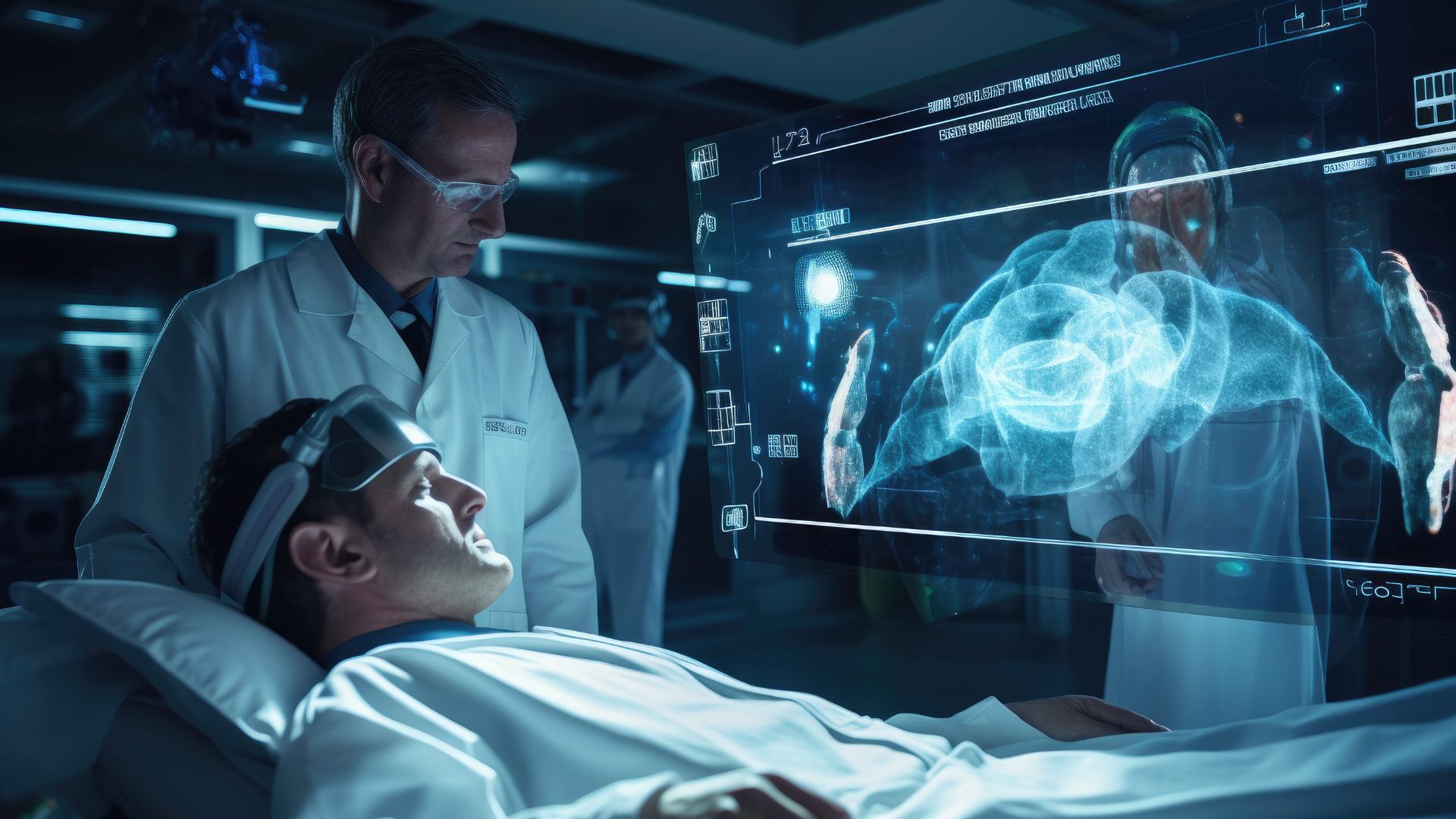Artificial Intelligence (AI) is reshaping the way healthcare providers diagnose diseases. With advancements in AI technology, diagnostic processes are becoming more accurate and efficient. AI is not just enhancing the accuracy of diagnoses but also speeding up the time it takes to get results. This is a game-changer for doctors, patients, and healthcare systems worldwide.

What is AI in Healthcare?
AI in healthcare refers to the use of algorithms and machine learning techniques to analyze medical data. These technologies can help doctors make decisions, predict health risks, and diagnose diseases. AI tools can handle large amounts of data quickly and efficiently, something humans might struggle to do. In diagnostic precision, AI uses this capability to analyze medical images, lab results, and patient histories.
The Role of AI in Diagnostic Precision
AI is redefining diagnostic precision by providing tools that can identify patterns and detect abnormalities that might be missed by human eyes. For instance, in radiology, AI algorithms can examine X-rays, MRIs, and CT scans with high accuracy. This helps radiologists spot conditions like tumors, fractures, or infections early on, making treatments more effective.
One of the main reasons AI enhances diagnostic precision is its ability to learn from vast datasets. The more data AI systems process, the more they improve their accuracy. This process, known as machine learning, allows AI to recognize complex patterns in data that may be invisible to humans. As a result, AI can catch subtle signs of diseases like cancer, heart conditions, or neurological disorders before they become severe.
Benefits of AI in Diagnostics
Faster Diagnosis
Time is crucial in healthcare, especially when it comes to conditions like cancer or stroke. AI systems can process data much faster than human doctors. This enables quicker diagnosis, allowing patients to receive treatment sooner. In some cases, AI can provide a diagnosis in minutes, which would take doctors much longer to assess.
Improved Accuracy
AI’s ability to analyze massive amounts of data means it can offer more precise diagnoses. For example, in the case of cancer detection, AI can scan medical images for small changes that might indicate the presence of tumors. This increases the likelihood of early detection, which significantly improves treatment outcomes.
Reduced Human Error
Despite the best efforts of doctors, human error can occur, particularly in high-pressure situations. AI helps reduce this risk by offering second opinions based on data analysis. It can serve as a safety net, making sure that nothing is overlooked.
Personalized Treatment Plans
AI can also help personalize treatment plans. By analyzing a patient’s medical history, lifestyle factors, and genetic information, AI can recommend the most effective treatments. This personalized approach leads to better patient outcomes, as treatments are tailored to the individual’s specific needs.
AI in Specific Medical Fields
AI in Radiology
AI has made significant strides in radiology. AI tools can now read X-rays, CT scans, and MRIs to identify abnormalities with a high degree of accuracy. For example, AI can detect early signs of lung cancer by analyzing CT scans, leading to earlier intervention and better survival rates.
AI in Pathology
In pathology, AI systems are helping pathologists analyze tissue samples to diagnose diseases like cancer. AI can recognize patterns in cells that indicate cancerous growths. It can even predict how aggressive a tumor might be, helping doctors make better treatment decisions.
AI in Cardiology
In cardiology, AI tools can analyze heart scans and predict the risk of heart attacks or strokes. These tools help doctors identify heart conditions early, allowing for preventative measures or timely interventions. AI can also monitor heart rhythms, detecting irregularities that could lead to serious health problems.
Challenges and Limitations
While AI has made significant improvements in diagnostic precision, it still has some limitations. One of the biggest challenges is the need for high-quality data. AI algorithms rely on large datasets to learn, and if the data is flawed or biased, the AI’s predictions can be inaccurate.
Another issue is the potential for over-reliance on AI. While AI can assist doctors in making decisions, it is still important for healthcare professionals to use their expertise and judgment. AI should be viewed as a tool to support doctors, not replace them.
The Future of AI in Healthcare Diagnostics
The future of AI in healthcare diagnostics looks promising. As AI technology continues to improve, it will likely become an essential part of the diagnostic process. With more accurate and faster diagnoses, patients will receive better care, and healthcare systems will become more efficient.
AI is also expected to become more integrated into personalized medicine. By analyzing genetic data, AI could offer even more tailored treatment plans for individual patients. This could lead to a future where doctors can predict and treat diseases before they even appear.
Conclusion
AI is revolutionizing diagnostic precision in healthcare, providing faster, more accurate results. It improves the accuracy of diagnoses, reduces human error, and enables personalized treatment plans. As AI technology advances, we can expect it to play an even greater role in healthcare, making the diagnostic process more efficient and accessible to people worldwide. The future of healthcare looks brighter with AI at the forefront of medical decision-making and patient care.
